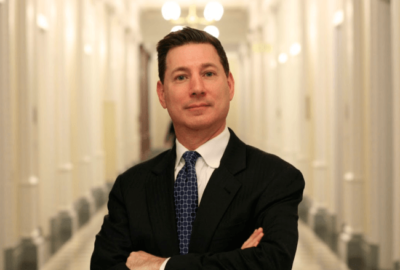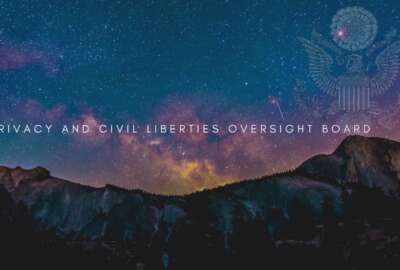Privacy, technology groups urge Biden to revive surveillance oversight board
The Privacy and Civil Liberties Oversight Board currently lacks the membership necessary to issue reports and start new projects.
Advocacy groups are pressing President Joe Biden to appoint new members to the Privacy and Civil Liberties Oversight Board, as the panel’s current vacancies means it is unable to initiate new projects as the government’s privacy watchdog.
In a letter sent to Biden today, the American Civil Liberties Union, the Project On Government Oversight and 17 other groups urged him to appoint three new members to the board “as expeditiously as possible and with nominees that will vigorously protect privacy and civil liberties while upholding government transparency.”
The panel currently has two members, but needs at least three of its five seats filled to reach the quorum necessary to issue reports and launch new investigations. The Senate would have to confirm any nominees that Biden puts forward.
“A functioning PCLOB is necessary to continue to hold the government accountable for safeguarding our privacy and civil liberties in surveillance programs that are often shrouded in secrecy,” the groups wrote.
The board is an independent federal agency created by Congress to ensure counterterrorism programs established in the wake of 9/11 aren’t violating U.S. privacy and civil liberties rights.
“The PCLOB has been a vital source of transparency into government surveillance and counterterrorism programs that are usually shrouded in secrecy,” Kate Ruane, senior legislative counsel for the ACLU, told Federal News Network.
But the panel has had a rocky history. Despite the legislation creating the board passing in 2007, it wasn’t fully staffed and operational until 2012.
The board’s 2014 report on the National Security Agency’s collection of Americans’ phone call data under Section 215 of the USA Patriot Act influenced Congress’ decision to replace the program. That year, the board also released an influential report on Section 702 of the Foreign Intelligence Surveillance Act.
But the panel lost its quorum between early 2017 and late 2018, limiting its activities during a time when U.S. officials were considering changes to the U.S.-European Union Privacy Shield.
The group regained its full slate of membership to start 2019. But advocacy groups say recent reports, including on the NSA’s “XKEYSCORE” Internet surveillance program, have fallen short.
“It is critical that the PCLOB operate with a full bipartisan slate of qualified individuals with
expertise in protecting privacy and civil liberties and experience in the field,” the letter states. “We have seen what can happen when board members fail to vigorously pursue the Board’s oversight mission. Years of work can be reduced to reports that provide little if any useful information or, worse, remain hidden from public view.”
Current board member Travis LeBlanc also opposed the release of the XKEYSCORE study this year on the grounds that it was produced “without adequate investigation, analysis, review, or process,” according to LeBlanc’s unclassified statement on the report.
In addition to returning the group to a quorum, privacy and tech groups want the administration to appoint new members “dedicated to vigorous pursuit of its mission,” according to the letter.
“The Biden administration must ensure the PCLOB can reengage with its mission of thoroughly reviewing federal counterterrorism programs by appointing privacy and civil liberties minded candidates to fill the board’s vacancies,” Ruane said.
The board has also been proposed as a potential check on the government’s growing use of artificial intelligence and machine learning technologies. The final report from the National Security Commission on Artificial Intelligence recommended “strengthening the ability of the [PCLOB] to provide meaningful oversight and advice on AI use for national security.”
“The board should be given visibility into AI systems before they are fielded, including at a more granular technical level, and should be resourced and staffed to fulfill the more technically sophisticated mission that the AI era now requires,” the report states.
The board may already be struggling in that regard, as one of LeBlanc’s major issues with the XKEYSCORE report was the panel “failed to use its investigation . . . to delve into important technological and modern electronic surveillance issues dominating the public discourse, like the use of algorithmic decision-making,” according to his statement.
Copyright © 2025 Federal News Network. All rights reserved. This website is not intended for users located within the European Economic Area.
Follow @jdoubledayWFED






